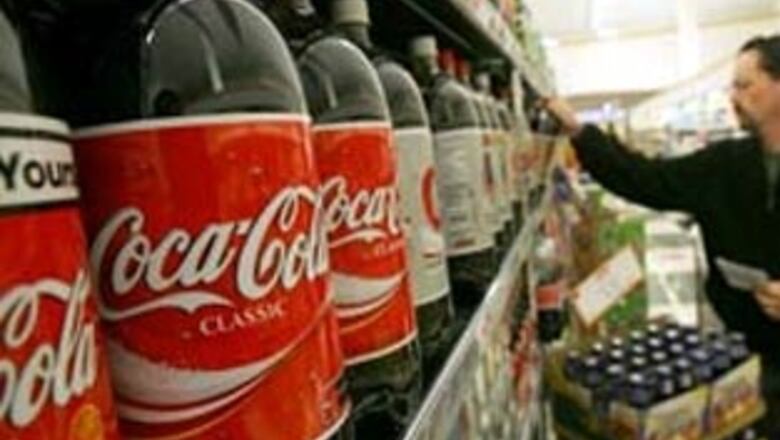
views
At the start of the global downturn in late 2007, Pepsico's CEO Indra Nooyi had said that companies like hers were resistant to a slowdown since they made food and beverages that made people happy, the need for which would only grow in turbulent times. So, is the fizz still intact? How does Pepsi's arch rival Coca-Cola read the scenario today - a year-and-a-half into the US recession?
President and CEO Muhtar Kent, Coca-Cola, said he continues to see bright spots even in areas which are economically depressed. "I consider myself very lucky to be in the business that we are in, which is essentially selling moments of pleasure at sensitive times, billions of times everyday."
He does not believe that the American consumer is going to pull the world out of this current economic stalemate.
Here is a verbatim transcript of the exclusive interview with Muhtar Kent on CNBC.
Q: Can you give us a sense of where we are in this slowdown based on where you sit? How is Coca-Cola dealing with this recession? What are you seeing in terms of growth and weak spots?
A: No one size fits all. Just to give you an example, Indian consumers are not participating in this crisis. Still we see a very dynamic environment in other parts of Asia. The stimulus package in China is really beginning to show. Then there are other parts of Asia like the Philippines which are not doing so good. Indonesia is doing fine. In Latin America, Mexico is a little more affected but Brazil is still doing fine. Both East and West Europe sentiment is bad. I still don't believe that finally the American consumer is going to pull the world out of this current economic stalemate.
Q: Gerhard Schroeder, the Former Chancellor of Germany, said, "If anybody thinks this recession ends this year, they are wrong because we have a very tough two years in front of us in Europe." So, is Europe one of the weak spots because you mentioned a lot of strong spots - China, India, etc. These are places that are obviously going to contribute to your expansion and growth.
A:Without a question, but despite difficult geographies like Europe, I consider myself very lucky to be in the business that we are in, which is essentially selling moments of pleasure at sensitive times, billions of times everyday. In that respect, we still see bright spots even in areas which are economically depressed.
Q: Let me ask you about the earnings at Coke that come from outside the US. 84% of earnings outside the US, is that the right number?
A: Yes.
Q: Right now, we have got the proposal on the table to tax international profits differently from the Obama White House. What do you think about that? I have spoken with a lot of business executives who are very unhappy with this. I want your response given your huge exposure to international markets.
A: You can put me in that camp as being very unhappy. I am unhappy not looking at it only from my lens. I am unhappy because here is something that is going to create a major issue for the competitiveness of American international business, which has been such an important part of America for the last 50 years. Every time American corporations invest overseas and grow payroll overseas, that creates jobs here in the United States. There is no other country in the world that taxes profits of their corporations made outside of their home base. So, the proposal that is being discussed is tax the profits made outside of America and tax those profits before you even bring them to America. This is going to curtail the investments of American corporations overseas. Most people that work for Coca-Cola in America are people that work for the international side of Coca-Cola.
Q: That's a very important point you make. It seems like more and more businessmen are coming out and talking about this, to try and effort some change here. What do you think the implications will be? Right now, the goal is to create jobs in America. Do you think this is going to do just the opposite? Will companies cut jobs or even worse, will they incorporate outside the US?
A: This will definitely cause unemployment in the US to grow. As the head of one of the most international American companies, I categorically believe that it will cause unemployment.
Q: Everyone's talking about the dollar's weakness recently. How do you see the currency markets here?
A: When the dollar actually weakens, because 80% of our business is outside of America, our business denominated in dollar gets better. No one can tell you what's going to happen to the dollar. All I can tell you is that we are going to see more volatility in currencies in the world in the coming years.




















Comments
0 comment